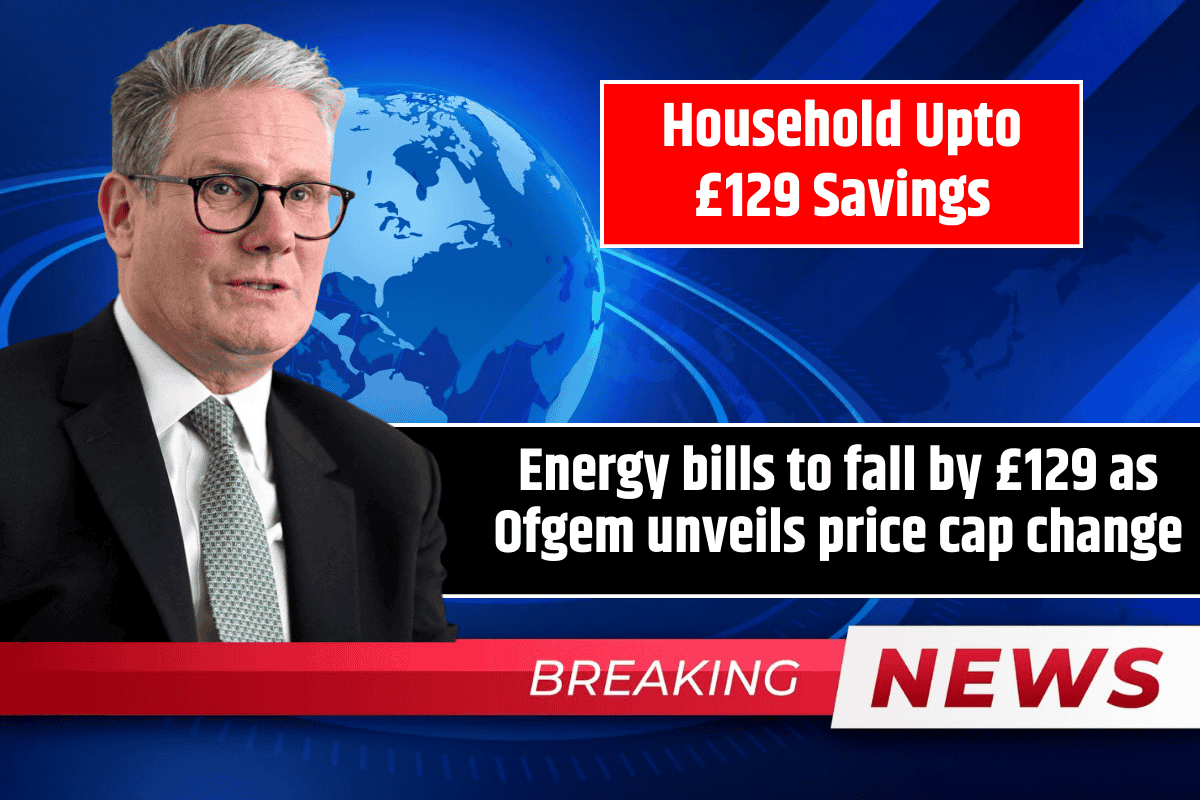Many families in the UK are finally getting some relief from rising living costs. Starting from July 2025, household energy bills will go down by around 7%, thanks to a new decision by the energy regulator Ofgem. Experts say this drop could save the average household £129 a year, bringing the total yearly bill down to £1,720.
What Is the Energy Price Cap?
The energy price cap is a rule created by the UK Government to stop energy companies from charging unfair prices. Introduced in 2019, this cap sets the maximum price per unit of energy that suppliers can charge. It applies across England, Scotland, and Wales.
This doesn’t mean your bill can’t be high—it still depends on how much energy you use. But the unit price is limited, which helps protect customers from massive price hikes.
Why Are Bills Going Down in July?
The new lower price cap comes after three increases in recent billing periods. The current cap is £1,849, but from July, it will drop to £1,720. That’s a £129 saving for the average household.
Experts from Cornwall Insight, a well-known energy research group, have forecast this decrease. They also believe energy prices will fall slightly again in October and January, if things continue to improve in the global energy market.
What’s Causing the Drop?
One major reason is the reduction in global gas and oil prices. International trade tensions, especially those linked to the United States under President Trump’s policies, have started to ease. This has helped bring energy prices down.
Also, April was tough for many households, with a 6.4% increase in energy bills and other charges like water bills, broadband, mobile fees, and even road tax going up. Inflation also rose to 3.5% in April, compared to 2.6% in March.
So, this price cap drop is a small but welcome break.
What Do Experts Say?
Craig Lowrey from Cornwall Insight said this is “a welcome development” that gives households some breathing space. But he also warned that many people are still struggling with high costs, and the fall isn’t enough to fix everything.
He added, “Bills are still much higher than they were at the start of the decade. For many, energy is still not affordable.”
How Often Does Ofgem Change the Cap?
Ofgem updates the energy price cap every three months. The changes are based mostly on how much energy costs in the wholesale market (the price suppliers pay before selling it to customers). This helps make sure the cap reflects real-world costs and offers fair prices to consumers.
Even though this new energy price cap won’t solve all money worries, it’s still a step in the right direction. Households have faced steep energy bills for too long, and any decrease is better than none. But with prices still higher than what people were used to a few years ago, it’s important to continue being careful about energy use and stay updated on future changes from Ofgem.
FAQs
What is the new Ofgem energy price cap for July 2025?
From July 2025, the new energy price cap is expected to be £1,720 per year for a typical household, down from £1,849.
How much money will households save due to this cap?
On average, households will save around £129 a year with the new price cap starting in July 2025.
What causes the price cap to change?
The cap changes every three months and is mainly based on the wholesale price of gas and electricity in the global market.
Will energy bills fall again after July?
Experts say there might be further small drops in October 2025 and January 2026 if the current trends continue.
Does the price cap limit my full energy bill?
No, the cap limits the price per unit of energy. Your final bill still depends on how much energy you use.
